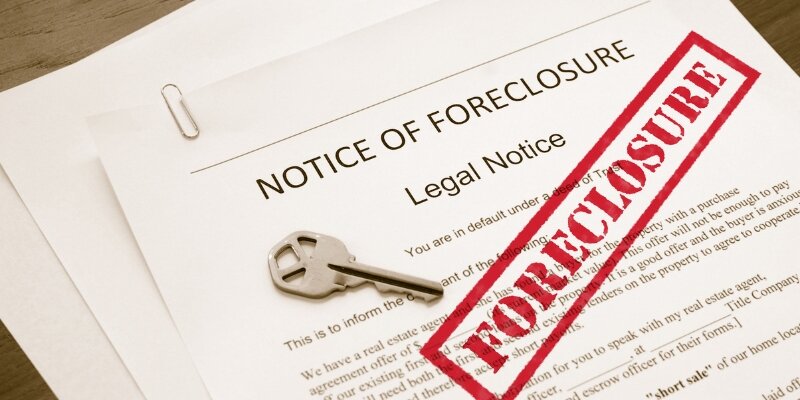
Differences Between Judicial and Non-judicial Foreclosure
Foreclosure is a distressing process that can have a significant impact on homeowners facing financial difficulties. When homeowners fall behind on mortgage payments, their lenders may initiate a foreclosure to recover their investment. There are two primary methods through which this can occur: judicial and non-judicial foreclosure. In this article, we’ll delve into the differences between the foreclosure process for each and how it affects the borrower.
Understanding How Judicial Foreclosure Works
Foreclosure Timelines in Judicial Foreclosure
Judicial foreclosure, a legal process involving court oversight, typically follows a more extended timeline:
- Lawsuit Initiation: The process begins with the lender filing a lawsuit against the borrower. This can take several weeks to months, depending on the local court’s backlog.
- Court Proceedings: Court proceedings may extend over several months, during which the borrower has the opportunity to respond to the lawsuit, further delaying the foreclosure process.
- Auction Sale: After court approval, the home is sold at a public auction, taking place several months after the initial lawsuit. This variable timeline allows borrowers more time to explore options and negotiate with the lender.
Understanding How Non-Judicial Foreclosure Works
Foreclosure Timelines in Non-Judicial Foreclosure
Non-judicial foreclosure, a streamlined process guided by state laws, tends to happen much more quickly:
- Notice of Default: The process begins with the lender sending a Notice of Default to the homeowner, providing a specific timeframe (typically 90-120 days) to cure the default. Unless the homeowner complies, the process will proceed.
- Notice of Sale: Following the Notice of Default, the lender issues a Notice of Sale, setting a date and time for a public auction, usually within 21-35 days.
- Auction Sale: The property is auctioned within a month or so of the Notice of Sale issuance. This rapid timeline provides homeowners with limited time to respond or find alternatives.
Comparing Foreclosure Timelines: Judicial vs. Non-Judicial Foreclosure
For a more concise understanding of the differences in timelines between the two foreclosure processes, consider the following comparison:
- Judicial Foreclosure Timeline:
- Lawsuit Initiation: Several weeks to months.
- Court Proceedings: Several months.
- Auction Sale: Several months after the lawsuit.
- Non-Judicial Foreclosure Timeline:
- Notice of Default: 90-120 days.
- Notice of Sale: 21-35 days.
- Auction Sale: Within a month of the Notice of Sale.
Related Articles
- Can You Owe Money After Foreclosure in Texas? Understanding Deficiency Judgments
- Foreclosure in Texas: How to Protect Your Credit and Sell Your Home
- Essential Resources for Avoiding Foreclosure and Stopping Foreclosure in Texas
- Understanding the Difference Between Judicial and Non-Judicial Foreclosure
- Key Differences: Which Is Better Foreclosure or Short Sale?
- Sell Your House Fast and Avoid Foreclosure
What You Need to Know About Foreclosure Timelines
Understanding foreclosure timelines is crucial for homeowners facing the risk of foreclosure. Here are some key takeaways:
- Proactive Response: Regardless of the process, a proactive response is essential. As timelines can vary, being aware of your state’s specific laws and deadlines is paramount.
- Seek Professional Guidance: Consult with a foreclosure attorney or housing counselor to navigate the process effectively, whether you’re dealing with judicial or non-judicial foreclosure.
- Explore Alternatives: Given the variation in timelines, explore alternatives such as loan modification, short sales, or government programs well in advance to avoid foreclosure.
How Judicial Foreclosure Affects Homeowners
- Time-Consuming: Judicial foreclosure is a more time-consuming process, which can provide homeowners with a longer timeline to explore options, negotiate with the lender, or find a way to cure the default.
- Legal Costs: Homeowners involved in judicial foreclosure may incur additional legal costs associated with defending the lawsuit, which can be financially burdensome.
- Deficiency Judgment: In some cases, if the auction sale doesn’t cover the full debt, homeowners may be liable for a deficiency judgment, requiring them to repay the remaining amount.
How Non-Judicial Foreclosure Affects Homeowners
- Speed: Non-judicial foreclosure is often faster, giving homeowners less time to work out a solution or explore alternatives.
- Less Legal Costs: Since it doesn’t involve court proceedings, non-judicial foreclosure typically incurs fewer legal costs for homeowners.
- No Deficiency Judgment: In many states, non-judicial foreclosure prevents deficiency judgments, providing some protection to homeowners.

Why Sell Your House To TX Cash Home Buyers?
1. You Pay Zero Fees
2. Close Quickly or the date of your choice
3. Guaranteed Offer
4. No repairs required, we buy as is
5. Less Hassles!
Call Now (281) 595-7550 Send Text
Options for Selling Your Property When Facing A Foreclosure
When facing the prospect of foreclosure, homeowners have several options for selling their property:
Short Sale
A short sale involves selling your home for less than the balance of the loan. The proceeds from the sale are then used to pay off as much of the mortgage debt as possible. This option can help homeowners avoid foreclosure and minimize damage to their credit scores.
Deed in Lieu of Foreclosure
In a deed in lieu of foreclosure, the homeowner voluntarily transfers ownership of the property to the lender to satisfy the debt. While this can be a viable option, it may have a similar impact on credit as a foreclosure.
Sell Your Property Quickly
For those facing non-judicial foreclosure with a fast-approaching auction date, selling the home on your own terms can be a proactive approach. You can work with a real estate agent or explore options such as selling to an investor or through a direct cash sale to avoid a foreclosure on your home.
The Bottom Line- Differences between judicial and nonjudicial foreclosure
Non-judicial and judicial foreclosures are two distinct processes with varying implications for homeowners facing financial difficulties. Understanding these processes and the options available can empower homeowners to make informed decisions and potentially find a solution that helps them avoid the devastating consequences of foreclosure. If you’re facing foreclosure, seek legal advice to navigate this challenging situation effectively.
Disclaimer:
The content provided on this blog is for informational purposes only. We are not attorneys or tax professionals. For personalized legal or tax advice, please consult with a qualified professional.
Written by Lisa Martinez, Founder of TX Cash Home Buyers

About The Company
TX Cash Home Buyers helps Texas homeowners sell quickly and simply — even in tough situations like repairs, inherited homes, or financial stress. Founded by Lisa Martinez, we’re known for our local experience, fair offers, and commitment to guiding sellers through off-market sales with clarity and care.




